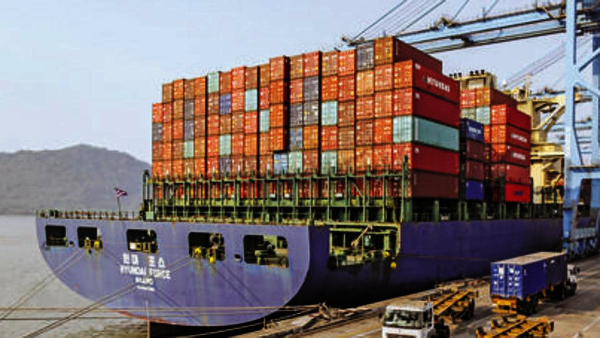Indian customs officials have detained a ship bound for Karachi’s Port Qasim for trying to pass on an autoclave as an industrial dryer. The vessel bearing a Hong Kong flag was carrying a machine that is used to launch ballistic missiles.
Customs officials received an intelligence tip-off about the ship. Based on the tip-off, it was intercepted on February 3 when it halted at Gujarat’s Kandla Port during its onward journey from Jiangyin Port in China.
The autoclave — 18×4 metre in dimension – is a pressure chamber that can be used for both civilian (scientific and industrial) and military purposes. It is being inspected by officials from the Defence Research and Development Organisation (DRDO) at the moment. So far, DRDO scientists have found that the autoclave in question is used to make the composite lining for solid-fuel ballistic missiles.
According to a Hindustan Times report, another team of nuclear scientists will be studying the autoclave this week. Moreover, top-level national security officials and intelligence agencies have been indicted about the detention of the vessel. The scientists are supposed to reach Kandla on February 17, to inspect the cargo. If their findings corroborate that of the first team, the autoclave will be seized. Additionally, the vessel’s owners would be charged for violating the Special Chemicals, Organisms, Materials, Equipment and Technologies (Scomet) export rules.
The Ministry of External Affairs has refused to divulge details of the Chinese vessel, but what is known thus far is that Da Cui Yun is the name of the ship.
Data available on the marinetraffic.com – a website that taps the movement of all listed vessels – has revealed that Da Cui Yun had left China for Port Mohammed Bin Qasim on January 17, 2020. Notably, the port where it was headed is close to the Space and Upper Atmosphere Research Commission (Suparco), which developed Pakistan’s nuclear programme.
The development has worried national security officials because of the ties shared by Pakistan and China. Back in 1989, Islamabad entered into an agreement with Beijing to buy 34 solid-fuel M-11 ballistic missiles. These missiles form the core of Pakistan’s nuclear capability, as everything else in its possession is a derivative of this weapon.
This incident has reminded security officials of the time a North Korean ship named Ku Wol San was intercepted at Kandla during the Kargil War. That vessel was also bound for Pakistan and had similarly lied about its cargo. Although the vessel was carrying missile components, metal casings, missile manuals, etc, it had declared these as water-purification equipment.
Source: MC
Image Courtesy:IDRW
You may also like
-
IAF Aircraft Set Course For Exercise Eastern Bridge VII At Oman
-
Trade Connect E-platform For Exports Is Single Window, Fast, Accessible And Transformational: Shri Piyush Goyal
-
IAF Set To Host The Indian Defence Aviation Exposition-II At Jodhpur
-
Defence Secretary to co-chair 5th India-Philippines Joint Defence Cooperation Committee meeting in Manila
-
Simultaneous Launch Of ‘malpe And Mulki’, Fourth And Fifth Ships Of Asw Swc (Csl) Project
